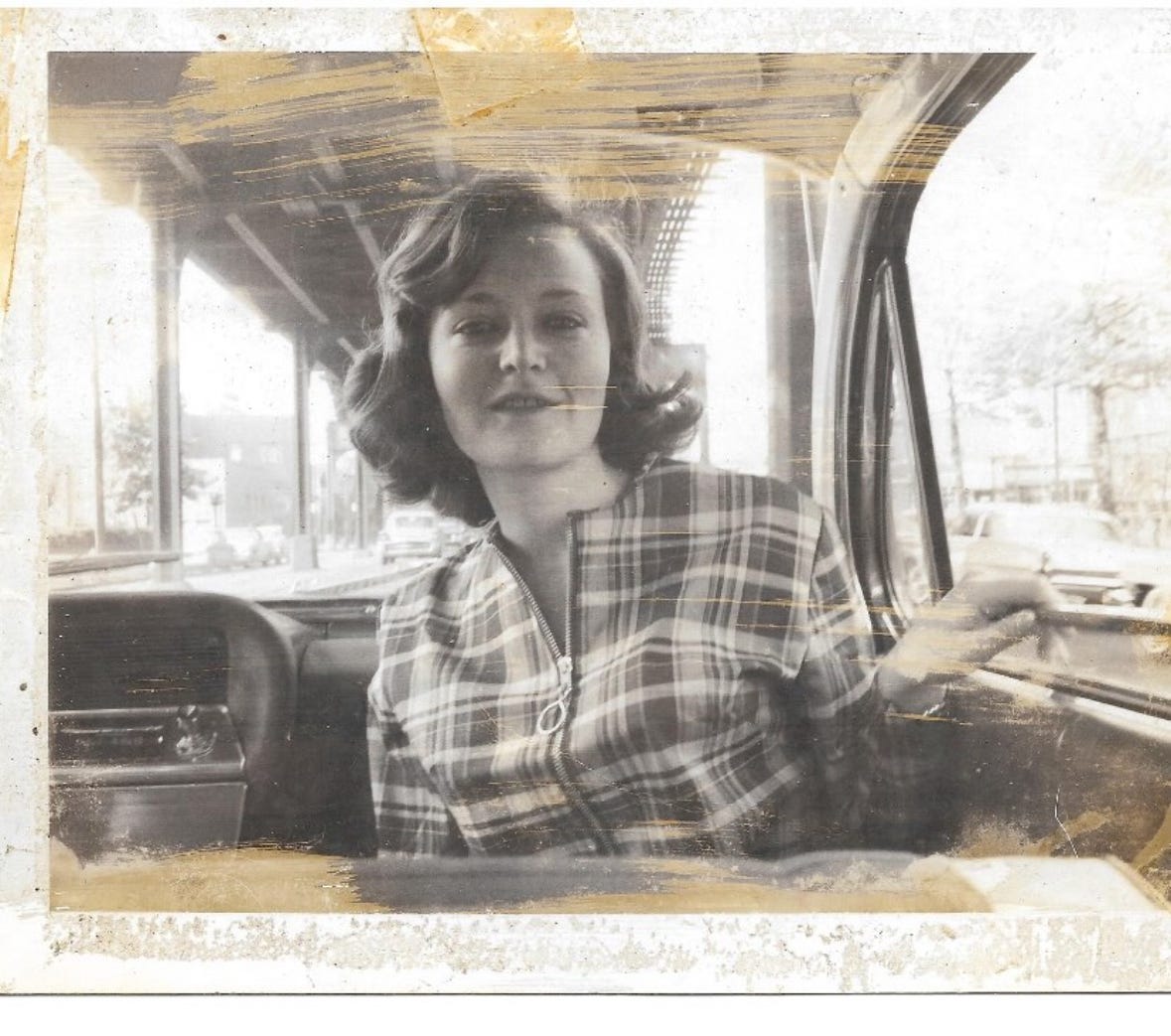
My mom’s cool hand reaches out with a tissue after I forget to catch the door with my foot on an errand. I’m growing to love the piquant smell of rubbing alcohol with its echo of wintergreen lifesavers, sensing it’s my mom’s lifesaver too.
Even at eight-years old, OCD is just one facet, the flip side to my mother’s enveloping warmth. Like Joni Mitchell, she sees both sides and that provides all the safety I need in the world.
But my family–my dad who divorced her because of it, my uncle who questioned why he must wash his hands when she was on her deathbed–felt OCD merely a defect. Why couldn’t she see reality and return to her senses?
I don’t blame my family for not seeing these hidden dimensions. I’m more disappointed that we’re further away from making these vital connections and repeating unintentional harm just as I witnessed so many years ago.
You’ll find this limiting take on OCD out in full force today. OCD is a design flaw, an oversensitivity that moves you away from the world instead of further into it. And it’s not just robbing adults, a model called SPACE (Supportive Parenting for Anxiety Childhood Emotions) coaches parents how not to accommodate their children’s persnickety compulsions. Unfortunately, this glosses over the hidden sensitivity and heart found within what seems like just a disorder.
Hardly ever do OCD specialists look at what OCD sufferers bring to the table that’s worth highlighting. I’m not here to glamourise OCD, I’m summoning the person there before it: a gifted, intuitive soul who notices more than the hidden dirt of the world. They spot the gold.
Abraham Lincoln wrestled with both sides too. Regularly placed on suicide watch as a young man, he felt keenly the agony of what tore the country apart, but he used his profound feeling to save it. With ‘malice towards none and charity toward all’, he reclaimed nuance. Just think how the story might have ended had he been hospitalized for clinical depression instead of given the chance to draw on the wisdom of his melancholy?
Current treatments for OCD balk at nuance. When one partner suffers with OCD, the common prescription is to stop accommodating them. Hardly ever does anyone look at the subtler gifts of the OCD sufferer: their capacity to notice not only what makes life worth living but also those existential moments that threaten us all. They also pick up on so much they’ve been witnessing in their relationships than most even realize. And yes, sometimes they need to have space from it because it can be so overwhelming to notice, feel, and carry so much.
It’s not easy living with such sensitivity and an accompanying wild imagination. But it’s quite possible to do it without viewing these qualities as the enemy or as just the illness of OCD itself.
What if OCD follows from not being able to be in tune with these qualities in a way that fits your unique personality? Again, imagine if Abraham Lincoln was told to suppress his deep feeling and close down his wide intellect and learn how to be like the general population?
My wish for OCD awareness week this year is for all of us—clinicians, family members, romantic partners, and OCD sufferers themselves—to start noticing all of the things that make people with OCD so special. I’d love to see us recognize how much wisdom, feeling, and creativity there is within OCD, and how with the right approach, you can tap into it and become most fully yourself.
There’s more to the story than what’s been written about OCD, more rhyme and reason to its tricky ways, and so much more than just a disorder inside you. I see a pretty amazing person, like my mom, who’s just been misunderstood and misappraised, someone who was just waiting for the right eyes to notice what’s been right there all along.
Michael Alcée, Ph.D. is a clinical psychologist and author of the forthcoming book The Upside of OCD: Flip The Script to Reclaim Your Life.




Beautiful!